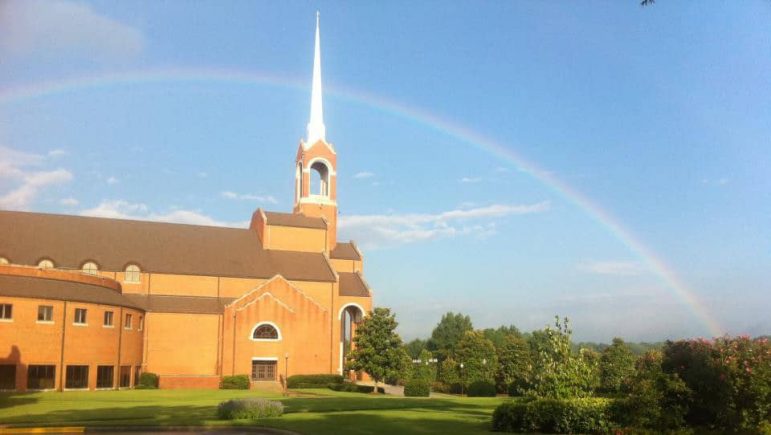A bill in the Alabama legislature would let Briarwood Presbyterian Church, a church in suburban Birmingham, do something that appears unprecedented. It would allow this church to have its own police force.
Briarwood is not a sleepy neighborhood church on the corner. It has a K-12 school, a seminary and about 4,000 congregants.
Church leaders say it’s such a big operation that they need to employ their own police officers. A Briarwood spokesman would not grant an interview but in a statement he says after the 2012 Sandy Hook school shootings they wanted their own force for the security of the congregation, students and guests.
State Sen. Jabo Waggoner is a sponsor of the bill, which has passed the Senate. He says the church already uses private security but Briarwood leaders asked for more.
“It was their decision and if they wanted to have their own police force, you know, I don’t see any reason why they can’t,” Waggoner says. “It’s not unusual.”
Waggoner likens it to a police force on a college campus. The Briarwood bill says the officers would only have jurisdiction on church property.
Critics suggest the church could cover up crimes. But Randall Marshall, legal director for the American Civil Liberties Union of Alabama, sees constitutional problems with the bill. He says it violates the First Amendment by taking a government service– law enforcement– and putting it in the hands of a religious institution.
“[It gives] the church the power to arrest people, the power to use varying levels of force in effecting those arrests and deciding who to arrest and for what crimes,” Marshall says.
But Samford University law professor John Carroll says he doesn’t believe the proposal is inherently unconstitutional, although he does call it “novel.” He notes that some religiously affiliated colleges and universities around the country have their own police departments, for example, Brigham Young University or Notre Dame.
“These are sworn law enforcement officers trained by the state,” says Carroll. “So I think in all senses they are police officers just like police officers that work the beat in Birmingham.”
Carroll adds he doesn’t see a proliferation of churches trying to do this simply because it’s expensive.
If the bill does become law, opponents vow to take it court. That could add new wrinkles to the constitutional lines between church and state.

